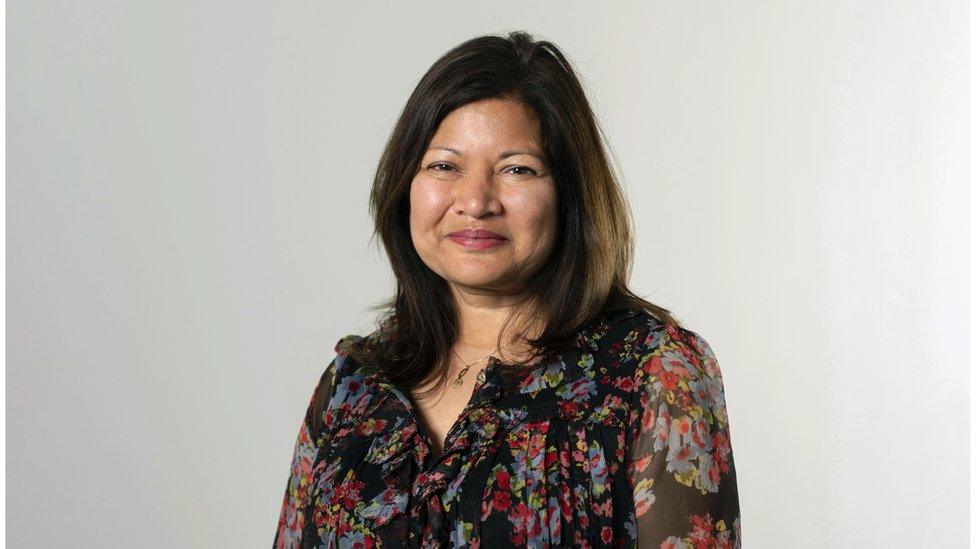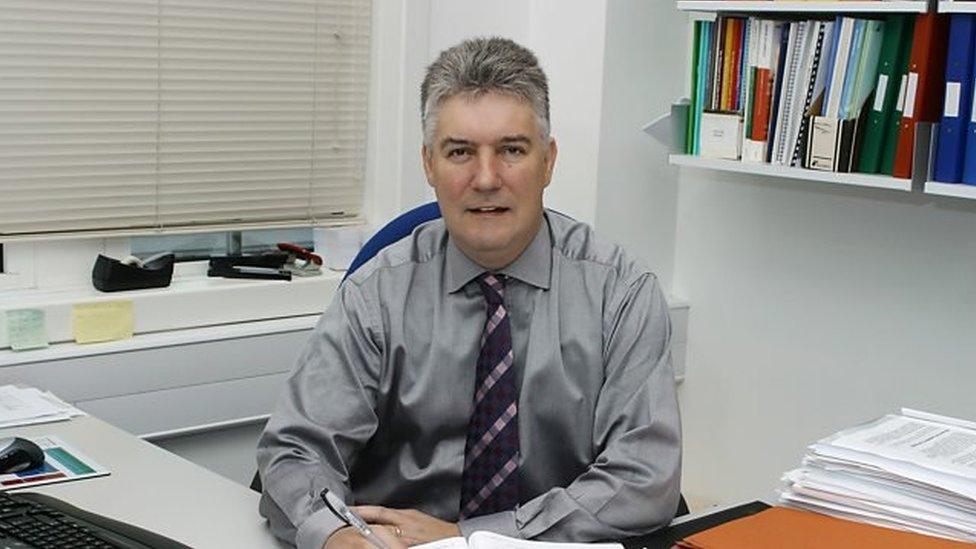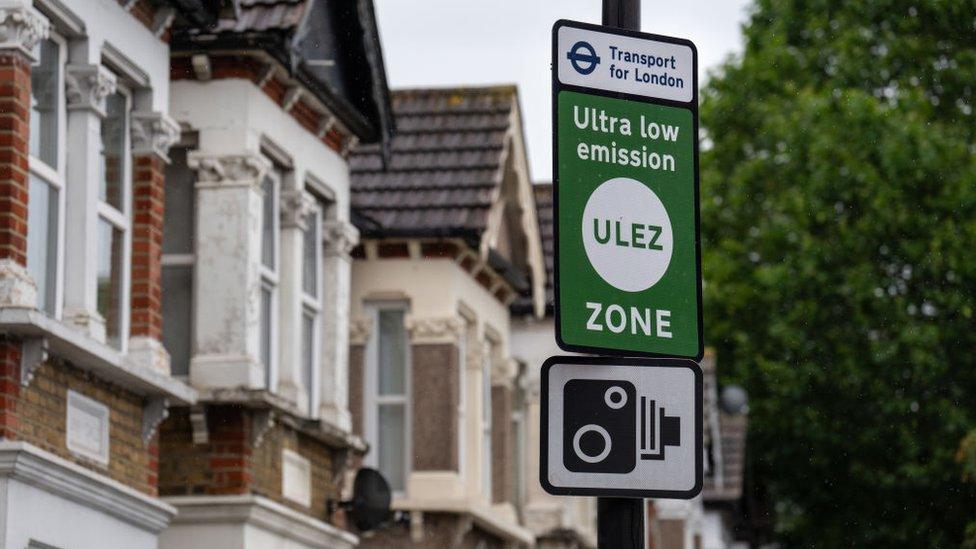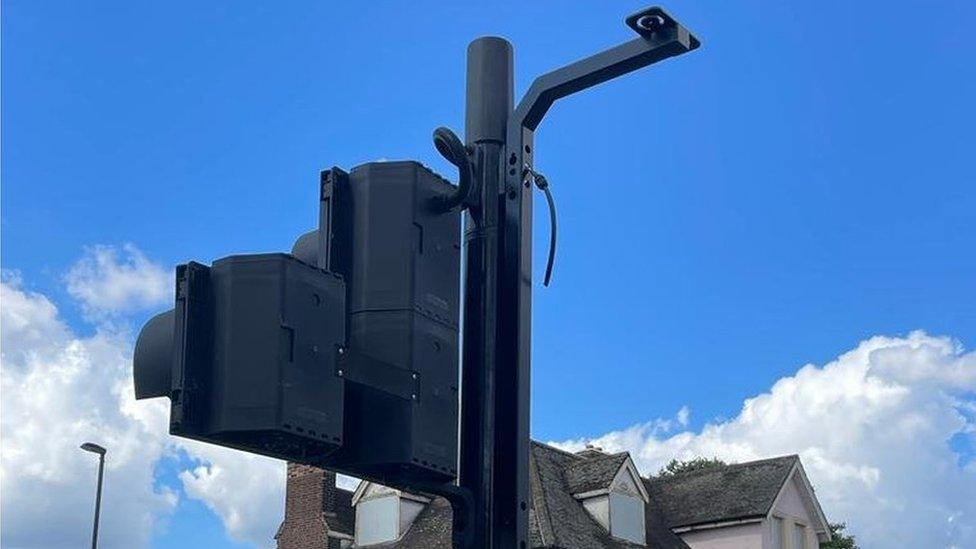Ulez: London Mayor accused of 'quashing research' questioning the scheme
- Published

Shirley Rodrigues is the deputy mayor for environment and energy
The leader of City Hall Conservatives has accused Mayor of London Sadiq Khan of "colluding to quash research" on the Ultra Low Emission Zone (Ulez).
Emails show deputy mayor Shirley Rodrigues twice asked an air quality expert to counter research questioning benefits of a polluting-vehicle charge.
Prof Kelly's science team from Imperial College London has been paid nearly £1m by Mr Khan's office.
The Labour mayor said Prof Kelly's work was not influenced by the funding.
The expansion of Ulez has proved controversial, with the Conservatives citing anger towards the policy as the reason for victory in last month's Uxbridge and South Ruislip by-election, the seat vacated by former prime minister Boris Johnson.
The expansion of the zone, which was unsuccessfully challenged in the courts by five councils, will see drivers in outer London pay £12.50 a day from August 29 if their vehicles do not meet emissions standards.

Prof Frank Kelly is a director of Imperial's Environmental Research Group
In a chain of emails between Ms Rodrigues and Prof Kelly, obtained via a Conservative Party Freedom of Information request, the deputy mayor for environment and energy said she was "really disappointed" that Dr Kelly's fellow Imperial academics published a study, suggesting the central London Ulez had a relatively small effect on air pollution.
It found that harmful nitrogen dioxide (NO2) concentrations were reduced by less than 3% in inner London nine months after the expansion of the zone.
On 16 November 2021 Ms Rodrigues told Prof Kelly she was "deeply concerned about the damage this misleading study is doing, both to our credibility and to low-emission zones as a policy instrument".
She asked him if "there is anything you can do or advise to help us set the record straight?".
'Happy to fight back'
Prof Kelly agreed to issue a statement that read "the actions of the mayor's office... including the introduction of the Ulez, collectively are providing a major benefit".
Ms Rodrigues then amended the statement, removing the word "collectively" and adding a line saying the introduction of the Ulez "has dramatically reduced air pollution in London".
On 13 February 2023, Ms Rodrigues again emailed Prof Kelly, asking him whether he could write to the Daily Telegraph to "challenge some of the misunderstandings" in its reporting.
Prof Kelly said Imperial College was against putting out a "direct contradiction" to the piece but said: "As always, I'm happy to fight back."
City Hall also asked Prof Kelly if he would speak to David Lammy, Labour's shadow foreign secretary and a radio presenter on LBC.
They promised a "friendly" experience as the MP was "very supportive" of Ulez.
The team that Prof Kelly leads at Imperial has been paid a total of £891,992 by City Hall since 2021.
This includes £45,000 of funding for a study into the health benefits of the mayor's air quality policies.
'Dominating the debate'
Neil Garrett, leader of City Hall Conservatives, told BBC Radio London the emails "reveal a collusion to quash the research" that did not support the mayor's policy, and there was a worry "that we can't rely on the science".
He added: "We know we have an air quality problem, but Ulez is dominating the debate and we might be better off looking at other things."
Mr Khan's spokesperson added: "It is right - and standard practice across government - that we commission experts to carry out research to inform the work we do."It is commonplace for academic experts to disagree with how other academic studies are interpreted, as was the case here."
On the critical study, the mayor's spokesperson said: "The Ulez analysis from the engineering department at Imperial only paints a partial picture, not accounting for the full lifetime impact of the scheme, and only focusing on its immediate impact around its launch."
The mayor's own report found that NO2 concentrations in inner London were an estimated 21% lower than they would have been without the Ulez.
Imperial College said it was not releasing a statement at this time.

Follow BBC London on Facebook, external, Twitter , externaland Instagram, external. Send your story ideas to hellobbclondon@bbc.co.uk
- Published21 August 2023

- Published18 August 2023

- Published15 August 2023